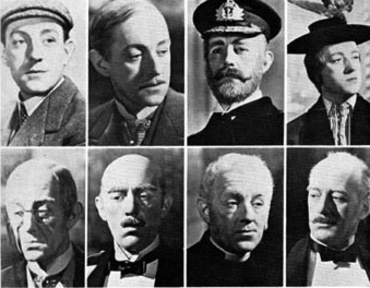It is this successful transformation of a once superior power first into an equal (signified by imperial marriages) and then into a subservient client-state that seems to have left an indelible residue in China’s tradition of statecraft. It was achieved with a specific “barbarian-handling” tool box first described by its early practitioner, the scholar and imperial advisor Lou Jing (婁敬) 199 BCE. His method was first applied when the Xiongnú [匈奴 horse-nomad state] were still very strong and the Han were not only tactically inferior (their chariots were totally obsolete for fighting mounted archers) but also beset by political divisions, so much so that a 198 BCE4 treaty required the payment of an annual tribute in kind (silk, grain, etc.), and the formal attestation of equality for the Chanyu [Qagan, Khan] embodied in a marriage alliance, formalized by imperial letters that make the equality fully explicit.
The first barbarian-handling tool is normally translated as “corruption” in English translations, but perhaps “addiction,” or more fully “induced economic dependence” are more accurate: the originally self-sufficient Xiongnú were to be made economically dependent on Han-produced goods, starting with silk and woolen cloths instead of their own rude furs and felt. At first supplied free as unrequited tribute, these goods could still be supplied later on when the Han were stronger, but only in exchange for services rendered.
The second tool of barbarian handling, is normally translated as “indoctrination”: the Xiongnú were to be persuaded to accept the authoritarian Confucian value system and the collectivistic behavioral norms of the Han, as opposed to the steppe value system, based on voluntary allegiance to a heroic (and successful in looting) fighting and migration leader. One immediate benefit was that once the Chanyu’s son and heir married an imperial daughter, he would be ethically subordinated to the emperor as his father-in-law — remaining so when he became Chanyu in turn.
The much larger, longer-term benefit of the second tool was to undermine the entire political culture of the Xiongnú, and make them psychologically well as economically dependent on the imperial radiance, which was willingly extended in brotherly fashion when the Han were weak, and then contemptuously withdrawn when the Xiongnú were reduced to vassalage. What happened between the Han and the Xiongnú from the equal treaty of 198 BCE to the vassalage treaty of 51 BCE, remained thereafter, and still remains today the most hopeful precedent for Han dealings with powerful and violent states — evidently the assigned role of the United States in the present Beijing world-view.
The method forms a logical sequence:
Stage One: start by conceding all that must be conceded to the superior power including tribute, in order to avoid damage and obtain whatever forbearance is offered. But this in itself entangles the ruling class of the still-superior power in webs of material dependence that reduce its independent vitality and strength.
Stage Two: offer equality in a privileged bipolarity that excludes all lesser powers, or “G-2” in current parlance. That neutralizes the still powerful Other party, and isolates the manipulated soon-to-be former equal from all its potential allies, preventing from balancing China with a coalition.
Stage Three: finally, when the formerly superior power has been weakened enough, withdraw all tokens of equality and impose subordination.
Until the Chinese government decided — very prematurely I believe — to awaken the world to its classically imperial territorial ambitions by demanding the cession of lands, reefs, rocks, and sea waters from India, Japan, Malaysia, the Philippines, and Vietnam (demands that disturb and damage the concurrent Tianxia narrative of an alternative and more harmonious state system, disseminated even within the confines of Stanford University), it was making much progress towards Stage Two, the stage of equality preparatory to the final stage of subordination.





